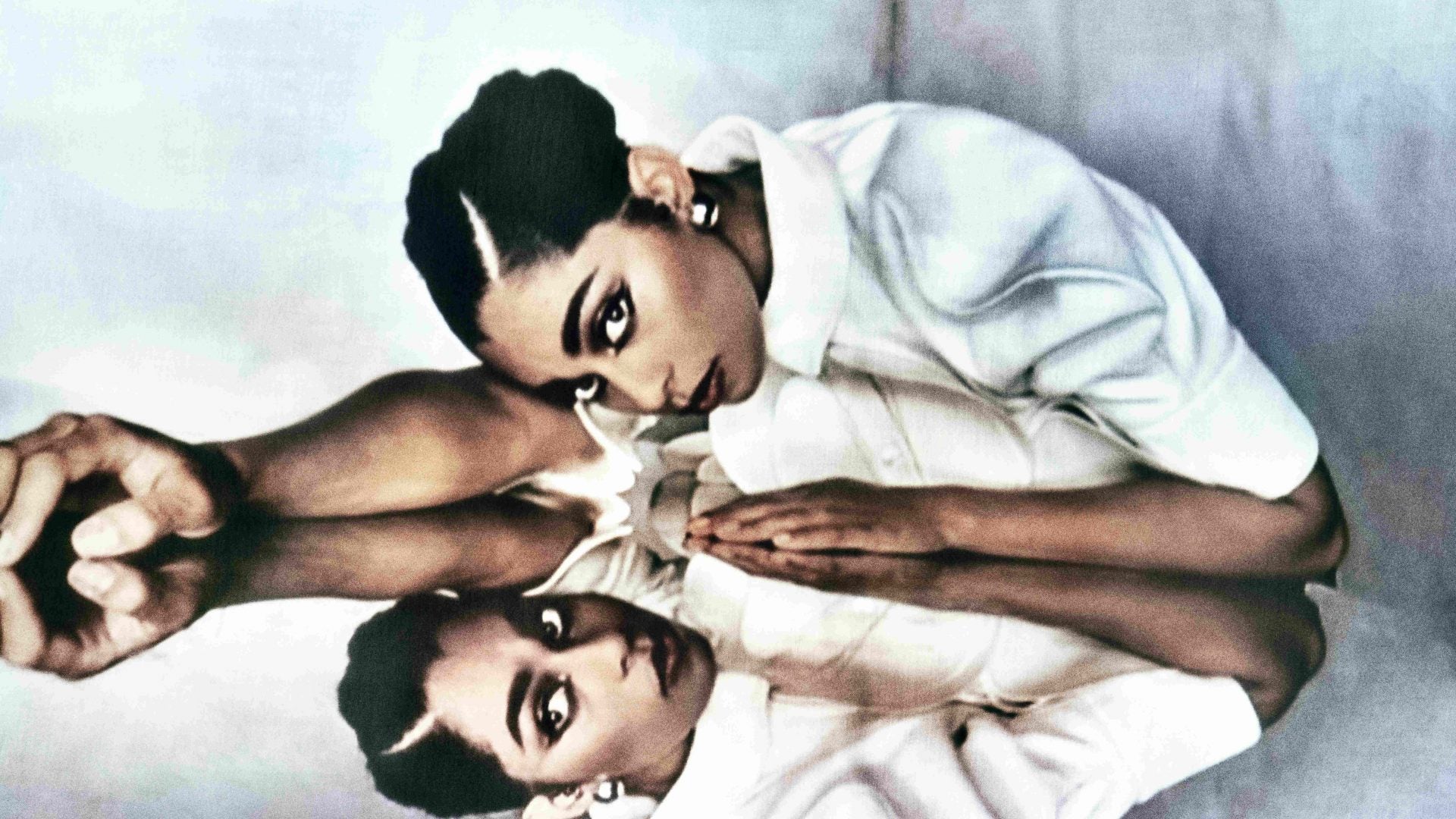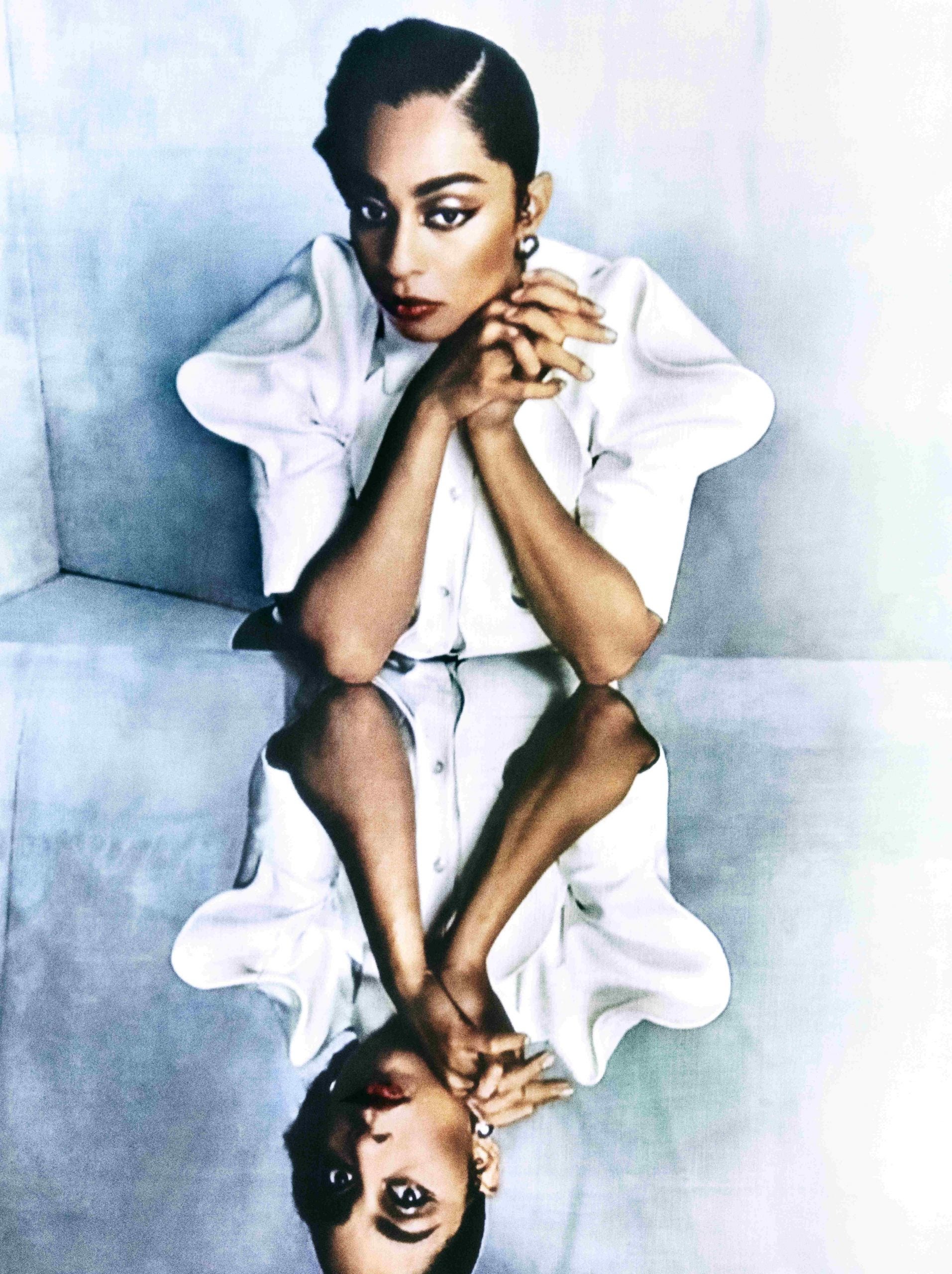
Celeste Epiphany Waite, whose stage name is simply Celeste, nabbed her first number one on the UK Albums Chart with her debut project Not Your Muse last month. Not since Jess Glynne topped the charts in 2015 has a British female singer achieved this feat. Not to mention, just last year Celeste landed at number one in BBC’s Sound of 2020 poll and copped a Rising Star Brit Award. Though she’s been compared to the likes of Amy Winehouse, Adele, and the late Nina Simone, Celeste is proving her ability to carve out a lane of her own.
Though she was born in Los Angeles, Celeste, whose father is Jamaican and mother British, was raised in Brighton, UK, and currently resides in London, England. She has come a long way since her YouTube cover days at 17. Now at 26 years old, Celeste is an award-winning singer-songwriter giving the mainstream industry something to look forward to with her artistry. Fresh off the high from her scoring her first number one album and receiving recognition for her work on the Golden Globe-winning film Soul, ESSENCE caught up with the industry’s new favorite Brit to discuss mainstream music, her UK upbringing, and the use of social media as a tool for artists!
How does your upbringing in the UK empower your appreciation for music?
CELESTE: It’s funny because most of the music that I grew to love was music that my grandparents played me. They’re actually English but most of the music they listened to was the pop and soul of the ‘50s and ‘60s like The Platters, Aretha Franklin and The Flamingos. You know those 4-piece or 5-piece men vocalists? Those kinds of things. A lot of the music I grew up listening to was from that era of American singers and I think that was a sign of the times back then that most British people were looking to America especially in soul, blues and jazz because they were at the beginning of it and we didn’t have much of it in the UK. Perhaps that’s the reason why even though my grandparents are white, their music taste was coming from the Black community’s taste in music.
I also grew up listening to a bunch of ska which I think is quite British because of that culmination of Jamaican people coming here in the ‘50s. When the second world war finished, it was called the Windrush Era but a huge amount of Jamaican men, more so than women, came to the UK to help rebuild the cities and the towns from being bombed in the war. In that time, their culture was completely integrated into British culture and then became these subcultures of ska and punk, which came later as an amalgamation of the two cultures.

In an interview with The Guardian, you said that “introducing a work ethic” to singing and performing arts school kind of put you off. Why was that?
CELESTE: People had a specific mold and model that they wanted me to fit into and I didn’t want to change my fundamentals of who I am for the sake of appeal to these people that I didn’t really care about [or] what they thought of me. In the early 2000s when I went to the performing arts school, it was a school for theatre and specifically here to get into shows in the West End which is the equivalent to Broadway in New York.
It was very traditional and to be honest, the majority of people who were getting parts written were white people. While going to that school when I was 10, I was strictly asked to pull my hair back really tight and it just didn’t feel right with me. When I said I didn’t want to go there anymore, my mom just whipped me out of it straightaway, and it’s the same now. If anyone ever tries to get me to fit a mold to serve a purpose that’s not fulfilling my creative urge, I sort of feel like backing away.
You were also part of the era of bedroom covers and you uploaded a lot of band rehearsals on YouTube. How have you seen the wave of YouTube covers influence our generation of artists?
CELESTE: When I was younger, I didn’t know how to break into the music industry. I had no idea how to find my way in and other people like me who don’t have family in the music industry or are equipped in that way just think to go on X Factor or one of those reality shows. I just knew from what I had seen on those that it wouldn’t necessarily suit me and I had seen people in my area do the whole YouTube thing so I was like, “I may as well try it.”
What was different about my videos was that I would just leave my laptop on photobooth and I would leave it on for a duration of a rehearsal or writing session. Then I would post bits of my process online so it would be like a 10 minute video and it wouldn’t be set up but I guess with it being quite raw, it maybe had a certain allure than other videos that are a bit more produced.
How did social media play into your artistry when you first started, and how do you see it impacting this new generation of incoming artists?
CELESTE: When I first started out, what were beginning to become the most powerful platforms was SoundCloud and YouTube. SoundCloud has kind of gone on the back burner and I don’t really know why. Maybe what happened is that a load of huge artists started putting stuff on SoundCloud because it was “the cool thing to do” and it flooded out the new people who were getting 700 plays over someone who was getting seven million. It was oversaturated and it [wasn’t] something you could use to find new or undiscovered talent [anymore].
I noticed when I first started seeing influencers on Instagram, a lot of who were just known for wearing cool clothes to the right parties, would just one day click their fingers and be like, “I’m gonna be a singer.” They would already have a fanbase. I remember feeling like, “Oh my God, I’ve been writing for like four years and now this random person is way further because they’re doing all of this stuff.” That’s when I saw the power of leaning into the side of myself a bit more, which to be honest wasn’t something that I found myself ever wanting to be that person on social media.
It seems like the power of the influencer is gradually dissipating and everything happens at different rates across the world, but here it feels like it’s been gone for the past year. They have to have more substance in stuff that they’re giving now. Brands thought these people would bring them money, but when they realize that these characters don’t hold longevity and they see a massive plummet, they don’t go back to those people. They go back to writers, poets, singers and artists.
As a rising UK star, how did you feel when you began to notice your music resonating within the mainstream?
CELESTE: I feel like it’s still kind of happening and the door is slightly ajar for me but not fully open for me in that world. Sometimes I feel a pressure to give more and conform to what people are electing in the mainstream but then I remind myself that’s not the thing to do because whenever I do it, it never feels right. I feel lucky that I’ve been able to remain myself in so many ways. In the mainstream, I feel like the creativity and the quality of the art diminishes but if you can reach the point where you’re understood by a lot of people, you can give them that new thing to understand. It can be a musician’s job to push the parameters and boundaries of what’s understood in the mainstream from a new idea to a new sound.
A lot of music now is hip-hop, rap and pop but you’re very sonically in-tune with a sound that is reminiscent of soul, blues and jazz. How is your music breaking barriers?
CELESTE: I’ve still got quite a lot of work to do to show it to my musical peers that I’m actually setting out a new language and a new take on those genres. With my first album traveling further than we thought it would, I’ll have that chance to stretch my imagination a bit further and be a bit more daring with the music in the realms of jazz and soul. I wouldn’t and couldn’t do it any other way. There wouldn’t be much point in being a musician if I didn’t make music I liked just to be well-known. If I have to change my music so much just to be known by loads of people, I’ll just do something else.
How did the Black Lives Matter movement impact your creative process and your music?
CELESTE: I definitely felt it here and in a slightly different way. Those layers of prejudice are those economic standpoints of those people and our people in our country. Growing up with a mixed background and mainly in the white working class areas where people don’t have money, that was the norm and for me, even though I’m in a different position now because of my music, I know that the majority of people in society are living on barely anything. That seeped into my feelings of frustration and upset that those people aren’t getting a chance to actually strive and get somewhere in life. Everyone, whatever background you come from, is gonna have emotional difficulties – and these things happen no matter where you’re from.
If you’re a person of color in this world, you can face those difficulties and prejudice on top of it maybe being difficult to get a job, getting funny looks when you go into the shop or getting followed around when you’re trying to get bread and a pint of milk. My experience in the UK with racism wasn’t outright racism. I remember getting called the N-word when I was 10 by a kid who was my own age and didn’t even know what he was saying. He heard his dad say it and they were kind of a family that were known for being tearaways. My experience in the UK is walking into a shop and getting a weird treatment, but I know mine is different from a Black man or a Black woman. Me being mixed race is almost something that people are more familiar with so I’ll get a slightly different treatment.







You also contributed to the Golden Globe-winning animated movie Pixar’s Soul. How did the opportunity come about?
CELESTE: When I think about that film, I get goosebumps. When I saw it, I had already done the cover of the Curtis Mayfield song [“It’s All Right] for the credits. Before I even knew what the storyline was, I said yes because I knew this was something I definitely want to be part of as a huge moment in history. When I saw the film’s narrative, I realized how much more it would stick to people’s psyche and understanding of the world around them. I cried and I was engulfed. It had such a universal meaning and it aligned with my spiritual ideologies. Mine isn’t necessarily based in religion but I have something that I really believe in, and I have friends who are religious and devout but it’s something they could relate to. It was so moving and it gives you comfort and understanding.





